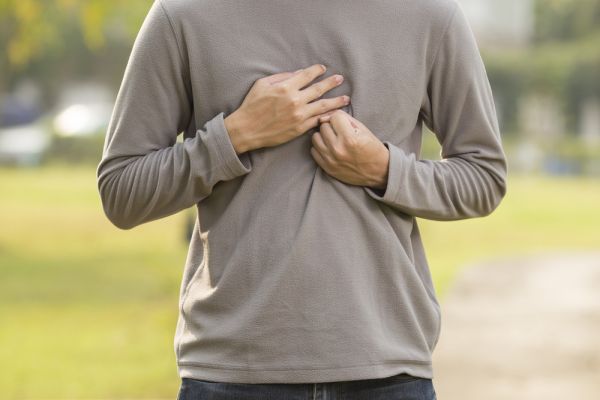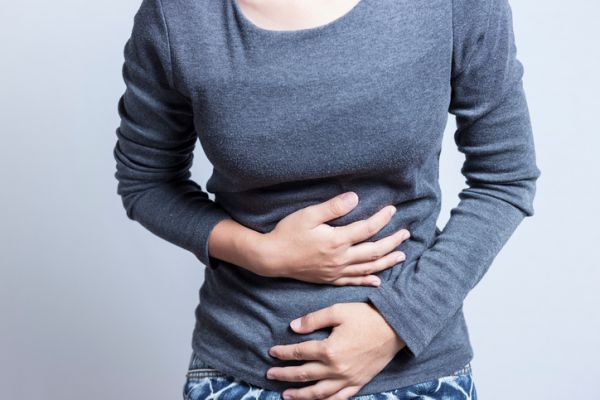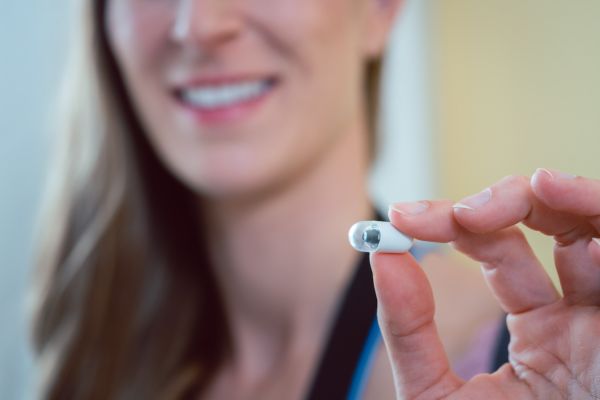Delayed gastric emptying can be a result of surgery, diabetes, infection and other causes.
Bloating, stomach discomfort, feeling full after eating just a small amount of food might indicate that your stomach is taking too long to empty after you eat, especially solids. This condition of delayed stomach emptying — called gastroparesis — can lead to problems with getting enough calories or controlling blood sugar.
Gastroparesis may be caused by a number of factors, including abdominal or esophageal surgery (including procedures like gastrectomy, roux-en-Y and pancreatectomy), gastrointestinal disorders or viral infections. Sometimes the cause is unknown, and the condition is called idiopathic gastroparesis. However, the most common cause of gastroparesis is diabetes.
How gastroparesis happens
Gastroparesis occurs when the vagus nerve, which controls the movement of food from the stomach through the digestive system, is damaged, causing the muscles of the stomach and intestine to not work properly. Symptoms of delayed gastric emptying may include bloating, stomach discomfort, feeling full after eating only a small amount of food, and even nausea or vomiting.
If you are experiencing these symptoms, talk to your physician, as they may recommend that you undergo a gastric emptying study for a definitive diagnosis. For this test, you’ll consume a meal, usually using a low-fat egg substitute (like Egg Beaters) that is labeled with a radioisotope, and scans will determine how long it takes for your stomach to empty. Normally, your stomach contents are at 60% or less two hours after a meal, and completely empty (or close to it) four hours after a meal. Gastroparesis is indicated if your stomach contents are greater than 60% at two hours or 10% at four hours.
Tips to improve digestion and ease symptoms
If you have diabetes in addition to gastroparesis, controlling your blood glucose is very important. Well-controlled glucose will help your stomach empty and prevent wide fluctuations in blood sugar levels and unexpected after-meal low blood sugar levels. Food modifications also may help your stomach to empty faster and control symptoms. Try these strategies:
- Eat smaller, more frequent meals, such as four to six small meals throughout the day.
- Choose low-fat and low-fiber foods. Fat appears to be linked to causing slower gastric emptying. However, fats in liquids are usually well tolerated and can help provide needed calories.
- Chew foods well before swallowing.
- Sit upright while eating and after meals. Avoid lying down for three to four hours to avoid acid reflux.
- Take a walk after meals. Exercise has been shown to help increase gastric emptying.
- Avoid alcohol, smoking, caffeine, acidic, spicy or fried foods, and carbonated beverages. (This will help with bloating or reflux, too.)
- Avoid taking fiber supplements or fiber bulking agents for constipation.
- Limit fluids at meals. Fluids can take up room in the stomach and might limit taking in enough calories. Instead, eat protein-rich foods first and drink fluids with calories. It may be better to have fluids after the meal and drink more between meals.
If you continue to experience symptoms of delayed gastric emptying, talk with your provider to determine if medications are needed to help your stomach empty faster.
Have more questions?
Our clinical dietitians are credentialed as Registered Dietitians and are an important part of your interdisciplinary medical team.
Learn more



